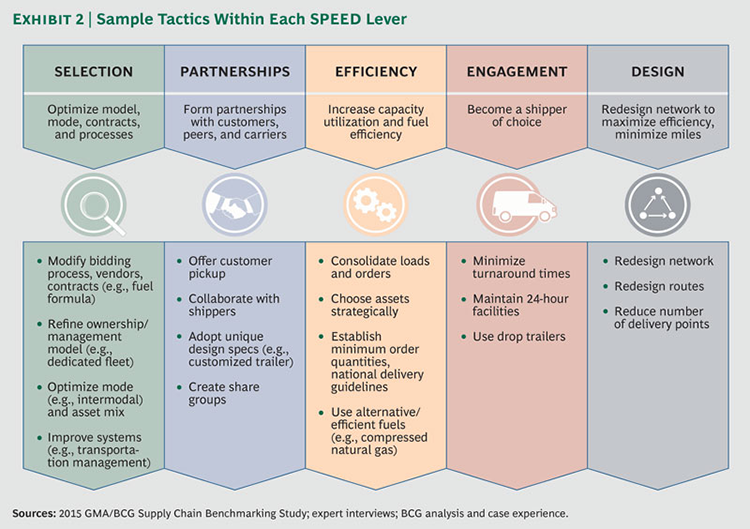Tackling the Threat of Rising Transportation Costs
A recent report produced by the The Boston Consulting Group (BCG) and the Grocery Manufacturers Association (GMA) found that CPG companies are increasingly being squeezed by transportation costs and need to carefully consider a strategic approach to supply chain management and logistics.
The report, titled “A Hard Road: Why CPG Companies Need a Strategic Approach to Transportation,” included data and information gleaned from a survey of CPG supply chain leaders, who are now faced with a 14 percent increase in freight costs as compared to three years ago. Surging prices have reversed all other supply chain cost-saving efforts, according to the report, which estimated that that CPG industry spends about $15.5 billion each year on transportation.
BCG and GMA identified driver shortages, chronic capacity squeezes, along with growing congestion and delays, as the most significant issues “threatening delivery times, inventory management, and service levels.” The jointly produced report also stated that aging transportation infrastructure is also a concern for companies.

“Now we’re seeing such an acute capacity shortage that it can be near impossible to get loads on some lanes moving,” said Peter Dawe, a BCG partner and coauthor of the report. “Transportation is becoming a strategic planning consideration, not a simple commodity to be sourced.”
The report suggested a variety of options to address the sustained threat posed by rising transportation costs, “efficiency moves and the choice of ownership model to new partnership approaches (with customers, carriers, and even other manufacturers) and network redesign.” The tactics have produced positive results for some large CPG companies, such as Procter & Gamble, Bumble Bee, and Land O’Lakes, according to the report.
“Because today’s complex transportation challenges fall beyond supply chain leaders’ traditional purview, making transportation a more important part of the business conversation can go a long way in mitigating its bottom-line impact — which BCG estimates to be as much as 5 percentage points,” the report reads.














